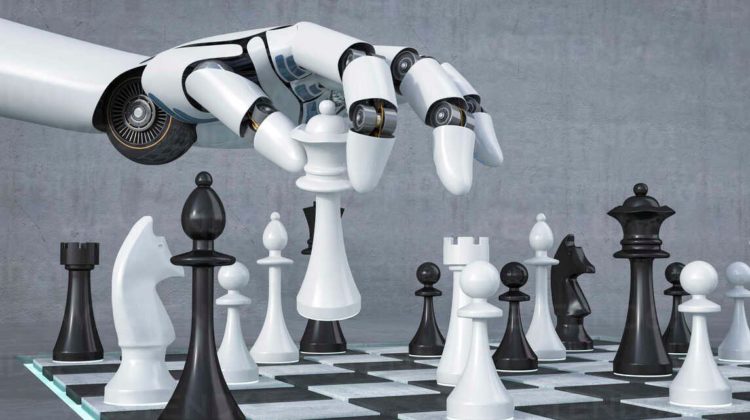
Yeah… the title might have been a little false. Oh well.
Think about it this way, the most common form of Artificial Intelligence (or AI for short) is when a computer is taught to think and make decisions like a human, without any human interaction.
So far, the AI we’ve created isn’t as powerful as you might think. The most common form of AI is “reactive machines,” which form decisions only based on the info they’re given. Reactive machines can’t make memories or remember details from another session. It can, however, create new strategies and become better at the task it’s assigned to do. Examples of this type of AI are programs that can play games like Chess, or other multiplayer games.
The next higher form of AI are called “limited memory systems.”. While reactive machines cannot look into the past, limited memory systems can.. somewhat. They’re usually only able to look into the near and immediate past to make decisions based on what just happened. A major example of this type of AI are self-driving cars, which take traffic patterns and car movements from the immediate past to calculate a safe route to the driver’s destination.
“Yeah, yeah that’s cool and all, but where are the Terminator-style AI robots?” Let’s get into that.
The next form of AI is called “theory of mind AI,” and it’s the next major step in AI research.
Theory of Mind AI is when an AI is able to understand and differentiate between different human emotions. This might not sound too impressive, but an AI understanding emotions would be a HUGE milestone in AI research. Understanding emotions will bring AI one step closer to imitating a human.
The fourth and final form of AI is “self-awareness” or “artificial consciousness.” An AI with self-awareness will be able to recognize itself, meaning it will know that it’s an artificial intelligence, it’ll know what its purpose is, and it’ll know what the AI itself wants to do. A perfect self-aware AI will be almost indistinguishable from humans, which, yeah, might sound a bit scary, but just imagine the possibilities!
Now, the fun, but truly scary part, AI taking over the world.
Self-aware AI will be able to have its own intentions and would be able to think and act however it chooses. Just imagine that.
If you think about it, an AI that has free will, that can understand emotions and that can make decisions for itself, couldn’t it easily be mistaken for a human? Think about how amazing, yet terrifying that possibility would be, and how many possibilities could open up.
If that does happen though, we might need to stay cautious anyway. If an Artificial Intelligence becomes self-aware, it could hide things from us humans, and, while highly unlikely, they could plot a plan to get revenge on us. Tom Scott made an interesting YouTube video about this, I highly recommend you check it out below.
Let me know in the comments what you think about Artificial Intelligence! Do you think researchers and engineers should keep developing AIs to reach the stage of self-consciousness, or should we stay on the safe side?
